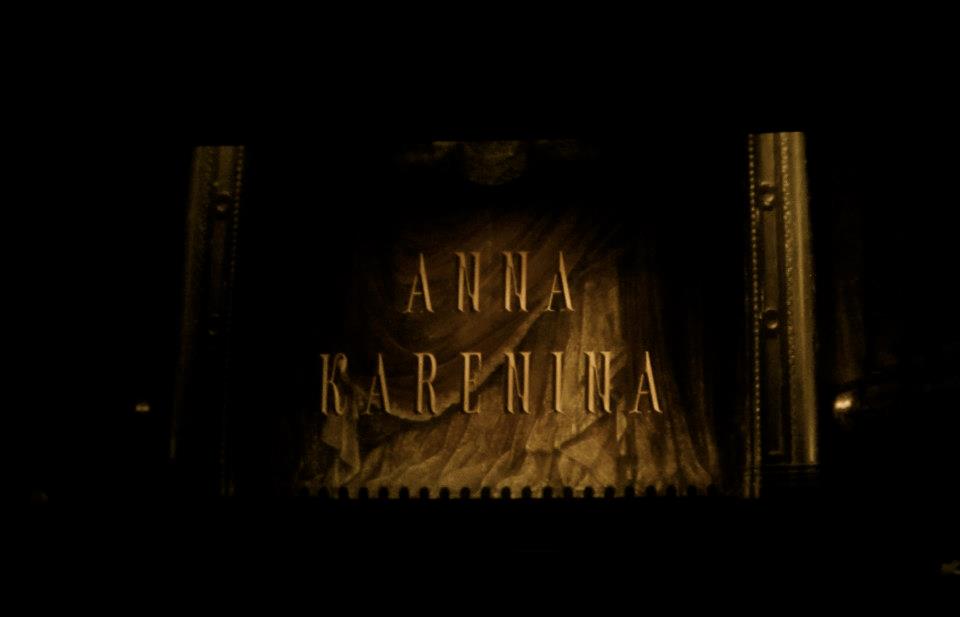I saw Joe Wright’s ANNA KARENINA a while ago and didn’t know what to think about it. This is not to say that I did not have feelings, thoughts, and sensations while watching it, that some of those were positive and some not, nor that I was not glad to have seen it (I was) or didn’t basically enjoy and appreciate it (I did). It was on one level a disappointing film, given one’s expectations for the material, but I didn’t dislike it and couldn’t altogether dismiss it. Tolstoy’s novel was one of those that I had not gotten around to reading and the film prompted me to correct that omission. My views of the film, positive and negative, are about the same as before, but that it led me to do so is certainly a positive.
Tom Stoppard’s screenplay, which essentially invents a hypothetical theatrical production of Tolstoy’s novel and then turns it into a film that slithers from an audience’s-eye view of the stage, to an onstage view, to a backstage view, to a god’s-eye view of the world at large, each spilling into the other, is both too-clever-by-half (so often the case with Stoppard) and aesthetically intriguing (as would be expected). Tolstoy was personally something of an anti-theatricalist, but the fact is that the 19th-century novel amounts, as a form, to a kind of theatre of the mind that is cast and staged by the reader. Presenting Tolstoy’s book as a filmed stage play is not a bad way of tapping into and extending that aesthetic.
In reading a novel, we cast the characters in our minds; a film maker casts them for us, making choices that might rub against the author’s descriptions or our own envisioning of them; doing it as a stage play that is then filmed throws in an intermediary that helps explain the difference. It deals with the fact that the dialogue is spoken in English (a break with verisimilitude that works better on stage than in the movies) and that some of the actors are almost stereotypically British in their vocal and physical mannerisms (seemingly a choice, as I have seen Keira Knightley, for one, do perfectly decent accent work), as well as make the Russian propensity for mixing vaudevillian caricature with high tragedy and stark realism easier to finesse for an English-speaking cast and audience. I suppose that it also serves to naturalistically justify the cuts and omissions that were necessary to make a two-hour film of a Russian novel.
None of which means that the film works as a version of the novel on the terms of the novel itself, only that they are not, at least necessarily, the terms of this particular film. That I am more inclined to discuss the aesthetic framework than the acting or the emotional arc of the narrative is surely telling – it probably is the most interesting thing about the film. But none of the acting is bad, and some of it is superb. Jude Law has a great character turn as Anna’s husband, and the remarkable Alicia Vikander plays Kitty in the very well presented parallel plot to the main story of Anna’s infidelity. I liked Knightley well enough, but it was those two who fascinated me, and made the film a human experience as well as an aesthetic intrigue.
Check listings for viewing options.

2 responses to “Anna Karenina”
[…] but elusive to a benighted observer. (This actress is also one of the best things about the current ANNA KARENINA, in which she plays Kitty.) Mads Mikkelsen, so memorable as the Bond villain who cried blood in […]
[…] is heartbreakingly good in the part. I first saw her in two historical films, Anna Karenina and A Royal Affair, to which she lent an uncommon subtlety and alertness. She brings the same, and […]